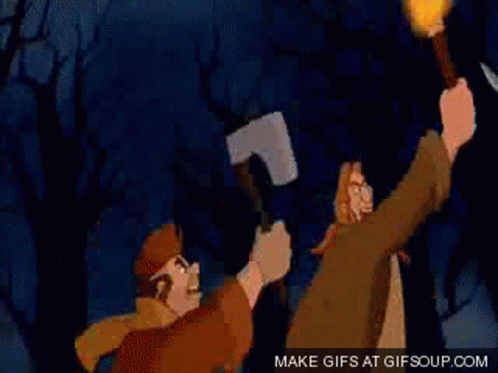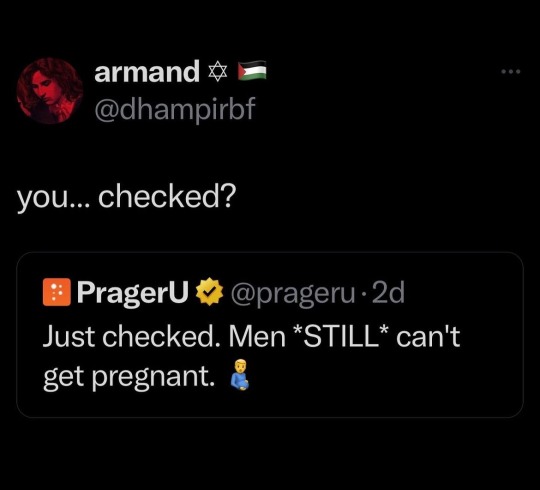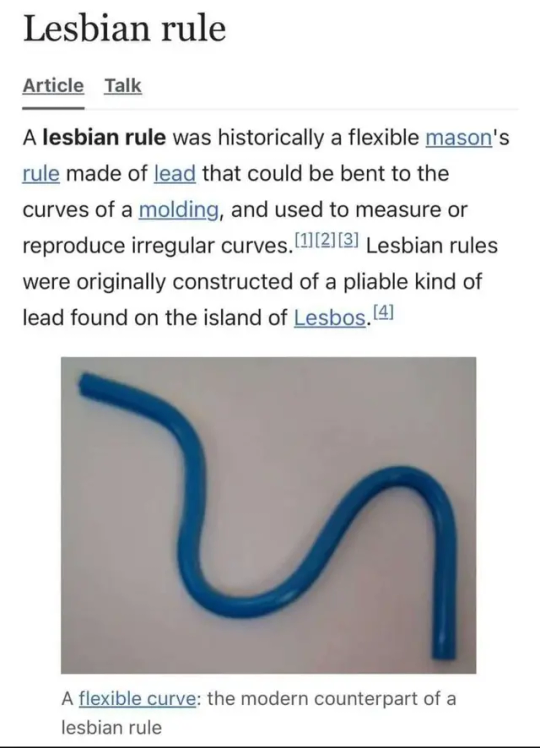Text
100K notes
·
View notes
Text
Hate diet culture so much bitches will b like “don’t eat processed carbs they’re so bad for you” like and??? So what?? God did not give us grain and stone to grind it with for no reason. Bread is inevitable. Bread is food for the heart and the soul. U think I’m gonna give that up in pursuit of instagram fitness?? U think I’m gonna deny myself the simple pleasure of toast with jam so I can endlessly chase an ever-shifting standard of beauty that ultimately means nothing? In 20 years I will no longer be beautiful and in 60 my body will be vacant food for other, smaller creatures. But the taste of fresh bread? Of homemade donuts and still-warm pie? I will carry the taste on my tongue into whatever follows this life. So like. Stop telling me I should diet lmao. I’m not abt to martyr myself just to get a man to look at me.
222K notes
·
View notes
Text
You know, that Mythbusters post legitimately changed my life. Before seeing it, I had exponentially more guilt and stress about not being able to sleep, which of course, further exacerbated my inability to sleep.
Now, every time I wake up about three am, knowing I have to get up at 6.45, instead of stressing and panicking about how my day is going to be sleep deprived and miserable, I just tell myself 'Time to activate Mythbusters Protocol' and lie there with my eyes closed safe in the knowledge that I am measurably reducing later feelings of exhaustion.
And when this happens, about 70% of the time the reduction of guilt and stress means I actually do fall back asleep, so all in all instead of getting only three or four hours sleep, I get five to six and a half.
Which y'know, major improvement in health and energy.
90K notes
·
View notes
Text
Broke:
Belle has Stockholm syndrome because she falls in love with the Beast, her kidnapper.
Woke:
Stockholm syndrome was coined to slander a woman who had been in a hostage situation but openly criticized the poor police response which recklessly put her in more danger and escalated the violence. She was then belittled and discredited publically by the police for this.

So. Yeah. Maybe Belle does have Stockholm syndrome actually.
60K notes
·
View notes
Text
Wooooahdude I just found this out but you're heirloom tomatoes actually. Did you know this
66K notes
·
View notes
Text
Fun fact about the early Catholic church is that, despite spending generations being persecuted by the Roman empire, it took less than 15 years under Theodosius I to go from “the empire is Catholic now” to “and also every other religion is banned.” You can literally read St. Augustine move from “state religious persecution is unacceptable” to “state religious persecution is cool actually” over his lifetime as Catholicism came to power. I’m sure there’s no broader lessons to be learned there
37K notes
·
View notes
Text
So the 1990s movie Independence Day was everywhere last week (for obvious reasons), and I was reminded of a particular pet peeve of mine in media: the big disaster epic where thousands or even millions of people die, but that’s not meaningfully acknowledged because we’re so focused on the eventual triumph of Our Heroes.
On one level, I get it. It’s hard to make an exciting, crowd pleasing movie if you stop the momentum at some point to mourn the catastrophic loss of life that goes along with your big action set piece. But honestly, that’s all I’m thinking about anyway when a major population center gets blown up or wave after wave of soldiers get mowed down or whatever. Who were those people? How did the loss of each one change the world in some way? How do you pick up the next day without them all? And that’s something I’ve always thought Tolkien, by contrast, did very well!
No, he doesn’t spend page after page giving us the backstory on every rank and file soldier to die at the Pelennor Fields, for example, but he does acknowledge that the victory was every bit as tragic as it was triumphant. He takes the time to give us the names of both captains and nobodies who died before we ever got to know them. He shows us there was a real human impact, and by giving us those names, he invites us to think more about them. Who were they really? What were their lives like? Who loved them back home and will miss them when they don’t return? Tolkien engages with that and even sometimes for the enemies, such as the Southron who dies at Sam’s feet in Ithilien.
I’m not necessarily on the same page with the broader culture on this point because a lot of people don’t seem to have this particular hang-up about their media and would (perhaps rightly) view too much of a focus on that kind of thing as extremely depressing, which is not what everyone is looking for in their pop culture diet! But I love and appreciate Tolkien for it anyway. And it’s probably no coincidence that a lot of those Name Only — or very close to it— dead guys are the ones I gravitate to the most easily in my own thoughts and fan fiction.
92 notes
·
View notes
Text
Any time somebody argues that you should avoid the use of obvious pop culture references and current slang in prose fiction in order to avoid "dating" the text, I'm reminded that our primary evidence for when several of Shakespeare's plays were written is that their dialogue quotes specific pieces of contemporary popular media, and that there's strong evidence many of the words he's credited by modern authorities with inventing are literally just contemporary youth slang. Like, if it's good enough for Shakespeare it's good enough for me, buddy!
9K notes
·
View notes






